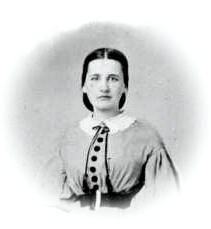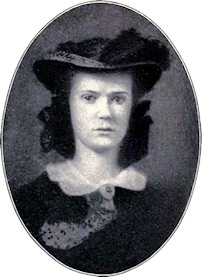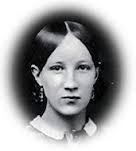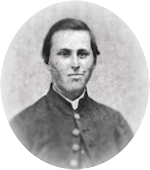November 1st.–Bright and frosty morning.
All quiet. No confirmation of Early’s defeat; and the nightfeat of Mahone puts the people in better hope.
One-third of all our lead comes from the mines near Wytheville, Virginia.
I got 128 pounds of flour from the investment in supplies in North Carolina, and one-fourth of that amount is still behind. We got 26 pounds of bacon, worth $260; the flour received, and to be received, 160 pounds, $320; and we expect to get 6 gallons molasses, $30 per gallon, $180: total, $760; and only $200 invested. This shows the profits of the speculators!
Gov. Yates, of Illinois, has declared Richmond will be in the hands of the Federals before the 8th of November. This is the 1st. It may be so; but I doubt it. It cannot be so without the effusion of an ocean of blood!
I learned to-day that every tree on Gov. Wise’s farm of any size has been felled by the enemy. What harm have the poor trees done the enemy? I love trees, anywhere.
The President attends to many little matters, such as solicitations for passports to leave the country, details or exemptions of husbands and sons; and generally the ladies who address him, knowing his religious bias, frame their phraseology accordingly, and often with effect.
The following is his last proclamation:
Proclamation appointing a Day for Public Worship.
“It is meet that the people of the Confederate States should, from time to time, assemble to acknowledge their dependence on Almighty God, to render devout thanks for his manifold blessings, to worship his holy name, to bend in prayer at his footstool, and to accept, with reverent submission, the chastening of his all-wise and all-merciful Providence.
“Let us, then, in temples and in fields, unite our voices in recognizing, with adoring gratitude, the manifestations of his protecting care in the many signal victories with which our arms have been crowned; in the fruitfulness with which our land has been blessed, and in the unimpaired energy and fortitude with which he has inspired our hearts and strengthened our arms in resistance to the iniquitous designs of our enemies.
“And let us not forget that, while graciously vouchsafing to us his protection, our sins have merited and received grievous chastisement; that many of our best and bravest have fallen in battle; that many others are still held in foreign prisons; that large districts of our country have been devastated with savage ferocity, the peaceful homes destroyed, and helpless women and children driven away in destitution; and that with fiendish malignity the passions of a servile race have been excited by our foes into the commission of atrocities from which death is a welcome escape.
“Now, therefore, I, Jefferson Davis, President of the Confederate States of America, do issue this my proclamation, setting apart Wednesday, the sixteenth day of November next, as a day to be specially devoted to the worship of Almighty God; and I do invite and invoke all the people of these Confederate States to assemble on the day aforesaid, in their respective places of public worship, there to unite in prayer to our heavenly Father, that he bestow his favor upon us; that he extend over us the protection of his Almighty arm; that he sanctify his chastisement to our improvement, so that we may turn away from evil paths and walk righteously in his sight; that he restore peace to our beloved country, healing its bleeding wounds, and securing to us the continued enjoyment of our right of self-government and independence; and that he graciously hearken to us, while we ascribe to him the power and glory of our deliverance.
“Given under my hand and the seal of the Confederate States, at Richmond, this 26th day of October, in the year of our Lord one thousand eight.hundred and sixty-four.
“Jefferson Davis.“
By the President:
“J. P. Benjamin, Secretary of State.”
The President gets but few letters from members of Congress.








